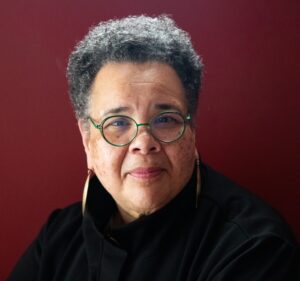
Aspiring to Power, Influence and Humility
(An audio recording of this blog post may be found here.)
One of the first requests I received in my new role as Director of the Wabash Center was to convene a group of “late-career” scholars. I said no. The friend requesting the workshop explained that they had participated in an early-career workshop, then a mid-career workshop. So, explained the colleague, it only stands to reason that, now, Wabash Center should host a late-career workshop. I said no. My rationale was that if late-career colleagues knew the richness of the workshop experience, then they should write a proposal and convene a group for one another. Now, in year five of this job, I have received the same earnest appeal many times from other colleagues in my generation. To each request, I have said no—until this past February.
In February, over lunch in Trippet Hall, two colleagues carefully explained to me why Wabash Center needed to support late-career colleagues with a workshop. I listened. Somehow, I was persuaded by this encounter. I have begun to think about the possibility of convening the old(er) colleagues.
In my wondering about this possible gathering, it quickly dawned on me that we have no meaningful name for “late-career” scholars. In the current system, being hired to a faculty position, moving through the tenure-track process and/or promotion, connotes early-career. The years after tenure and promotion connote mid-career. During the mid-career years some colleagues are promoted to full professor. Many colleagues remain associate professors for the rest of their career. Remaining an associate professor is not an indication of poor scholarship or poor collegiality. I do not like the terms “junior scholar” and “senior scholar.” Emeriti status occurs after retirement. With that said, what is the name of the vocational territory between mid-career and retirement? Why have we not identified this moment in our careers with a significant name that denotes the power of this season and so we can be aspirational? What if during this season of our career we are the best of ourselves and have the most to offer?
I began to think that “late(r)-career” colleagues need a description or profile. So far—here is my profile: we would focus upon a gathering of senior scholars who know they are at their career’s apex. We would gather those who have been in the enterprise long enough to know what they know, including their limits. Those with an earned confidence would be invited. These colleagues are no longer ruled by their fears. They are comfortable in their own skin and in their own classrooms. They no longer feel responsible for supporting the status quo. They have a freedom in their professional life that other, younger, less experienced colleagues are not afforded or have not earned. They have garnered enough institutional goodwill and cache that they are able to take institutional risks—make good trouble—without fear of reprisal or retaliation. They recognize that depression, family obligations, financial challenges, health issues, and creative deserts have not had the last word. They have clear paths, practices, and habits for their generativity in teaching, research and discovery. They understand the teaching life as, paradoxically, contemplative and publicly active.
They possess a feeling of being on the verge, which is exhilarating. They acknowledge and affirm the late season of their career, their success, who they have become, and the public journey they have undertaken. They are not narcissistic nor are they self-deprecating. Yet, they make time for early-career colleagues as a significant part of their scholarly duties. They are imaginative in their ways of mentoring, advising, counseling, coaching, advocating, allying and befriending younger colleagues.
The truth is that even if we do not have a name for these people, we all know one or two of these folks. When I was an early-career colleague, several of these folks saved my life—more than once.
These people are powerful, knowledgeable, and keep the community sane, somewhat healthy, and mission focused. These are the colleagues who have resisted becoming mean, embittered, or simply checking out of faculty life while still cashing the paycheck. These are the colleagues who save us from the bullies, the devils, and those who would haze us, even after tenure. They teach us with their actions how not to act entitled but be service-focused and humble.
There should be a clear path to this season of a career. Early career colleagues should be aware of the power in this season. I have played with the following names:
- Elder scholars - for too many people the term elder connotes being elderly.
- Apex scholars - reminds people of being an apex predator!
- Apogee scholars – nobody other than physic professors get this reference.
- Sherpa scholars - has a kind of symbolism and resonance to the wider meaning of the aforementioned profile but lacks grit.
- Baobab scholars - makes use of the idea of gathering under the Baobab tree for wise counsel with elders in the African village, but do enough people know the tree?
- Synergy scholars - communicates that the work is about collaboration, interaction, and cooperation, but it sounds foreign to teachers of religion and theology.
I am still working to name this season of our careers.
In the meantime, here are the challenges. As an early career colleague, what will you do to aspire to this season? If you are in this peer-group, what will you do to move into connection with colleagues who are playing these roles and taking on these responsibilities? If you are retired, how will you support those still in the struggle? If you are an administrator, how will you recognize and celebrate the great work these folks provide in your school and for our colleagues?
Leave a Reply